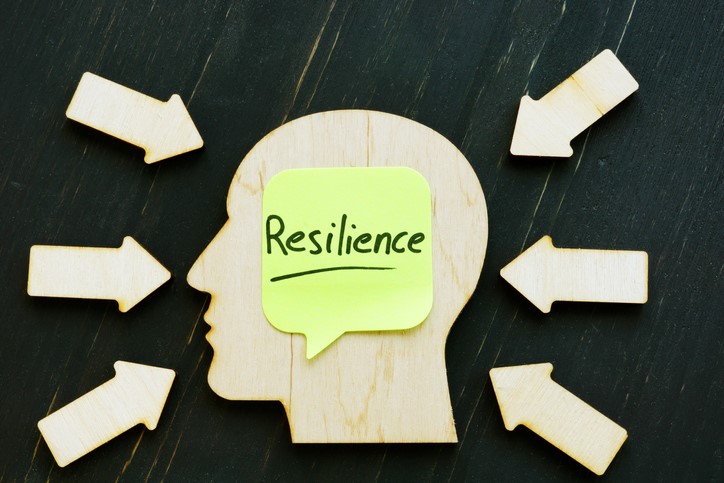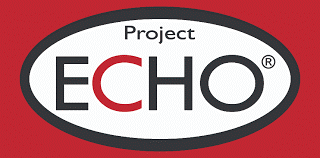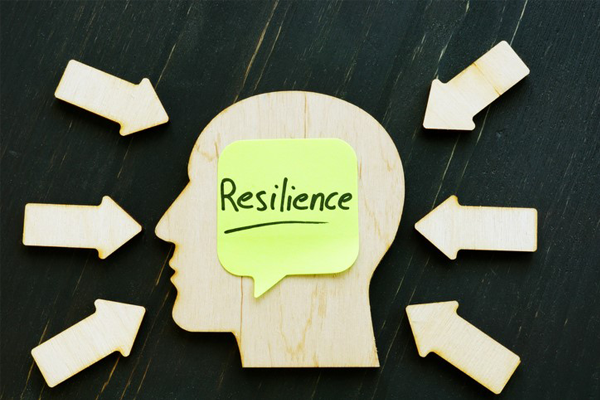
Building Individual Resiliency in Extended Events (Sessions 1, 2 and 3)
What can you do to manage stress in the workplace and in life?




Register
Course Information
- Audience: Public health professionals
- Format: Webinar
- Date/Time: Session 1 recorded May 6, 2020
Session 2 recorded May 13, 2020
Session 3 recorded May 20, 2020 - Price: Free
- Length: 44 minutes
- Credential(s) eligible for contact hours: Sponsored by New England Public Health Training Center (NEPHTC), a designated provider of continuing education contact hours (CECH) in health education by the National Commission for Health Education Credentialing, Inc. This program is designated for Certified Health Education Specialists (CHES) and/or Master Certified Health Education Specialists (MCHES) to receive up to 1 total Category I continuing education contact hour. Maximum advanced-level continuing education contact hour is 1. Provider ID: 1131137 Event ID: SS1131137_BPWR3.
If you are not seeking a CHES/MCHES contact hours, If you complete the evaluation, you will receive a Certificate of Completion. The Certificate will include the length of the course. - Competencies: Leadership and Systems Thinking Skills
- Learning Level: Awareness
- Companion Trainings: Building Resiliency in Extended Events (Sessions 4, 5 and 6)
- Supplemental materials: Session PowerPoint
- Pre-requisites:
About this Webinar
This Building Resiliency in Extended Events workshop series aims to help participants support resilience through individual and workforce strategies to manage stressors induced by prolonged emergencies. A recording of the didactic part of the workshops are available, together with a summary handout of the main points.
Building resiliency in an extended incident is not an identical process to building resiliency after a single disaster event or in normal non-disaster times. This training will focus on stress on the individual.
What you'll learn
At the end of the course, participants will be able to:
- Define resilience, and explain why building resilience during an extended event is different from building resilience during a single disaster
- List the six domains in which stress manifests during and after an extended incident
- Describe the signs of physical, emotional, cognitive, behavioral, spiritual, and social stress
- Identify strategies to mediate, prevent, and manage stressors and promote resilience in prolonged events
Subject Matter Expert

Mark Evces
Yaminette Diaz-Linhart
Mark Evces, PhD, ABPP is an organizational consultant and clinical psychologist who, prior to launching WorkHaven LLC, served as the Assistant Director of Mental Health in the NYU School of Medicine, World Trade Center (WTC) Health Program Clinical Center of Excellence, and Clinical Instructor of Psychiatry at the NYU School of Medicine. In his role at the WTC health program, he provided and supervised integrative, evidence-based psychotherapy for first responders, workers, and volunteers who participated in the rescue and recovery response to the WTC attacks of September 11, 2001. He has worked across a variety of public mental health clinical, training, and research settings in Atlanta, New York, and rural Georgia. For six years, he has consulted with nonprofit organizations to help further efforts towards greater workplace health and productivity in pursuit of social justice and human rights. He also maintains a private psychotherapy practice, where he provides trauma-informed care. Dr. Evces, with Gertie Quitangon, MD, co-edited Vicarious Trauma and disaster Mental Health: Understanding Risks and Promoting Resilience, published by Routledge Press in 2015.
Yaminette Diaz-Linhart, LCSW, MPH, was the recipient of the 2018 BUSSW Alumni Association’s Outstanding Contributions to the Field of Social Work. Her path has taken her from a MSW/MPH dual degree student to program director for BMC’s Center for Family Navigation in Pediatrics to her current role as a health policy research scholar in the doctoral program at Brandeis University. Yaminette was born in Puerto Rico and grew up in Connecticut. She moved to western Massachusetts to attend Mount Holyoke College.
Yaminette’s work has focused on improving child and family outcomes through mental health promotion and depression prevention for parents. Yaminette has been a member of NASW-MA since 2010 and holds a Master of Social Work and a Master of Public Health from Boston University School of Social Work and School of Public Health. She is committed to developing policy level strategies that help promote mental health for families through the life course.
Yaminette believes that in order to move toward health equity and human sustainability, healthcare organizations will need to include people in roles such as community health workers, patient navigators, and social workers to help meet the social and health needs of patients. Her research explores how organizations manage these “nontraditional” boundary spanner roles and how work design and employee management practices may impact patient outcomes. She believes that addressing the current gap in managing these roles is crucial for employee health and wellbeing, and as a result for patients.
Yaminette’s unique perspective straddles multiple identities, including her professional work as a public health social worker, and positions her well to think about building a Culture of Health through cross-sector collaborations in the management field.
Registration and Contact Hours
Select the Enroll button below to register for this webinar. If you have any trouble accessing the webinar, contact support@nephtc.org.
Acknowledgement: This project is/was supported by the Health Resources and Services Administration (HRSA) of the U.S. Department of Health and Human Services (HHS) under grant number UB6HP31685 “Regional Public Health Training Center Program.” This information or content and conclusions are those of the author and should not be construed as the official position or policy of, nor should any endorsements be inferred by HRSA, HHS or the U.S. Government.
* Yale School of Public Health, Office of Public Health Practice, a New England Public Health Training Center partner, is a designated provider of continuing education contact hours (CECH) in health education by the National Commission for Health Education Credentialing, Inc. All CHES credit inquiries are managed by YSPH

